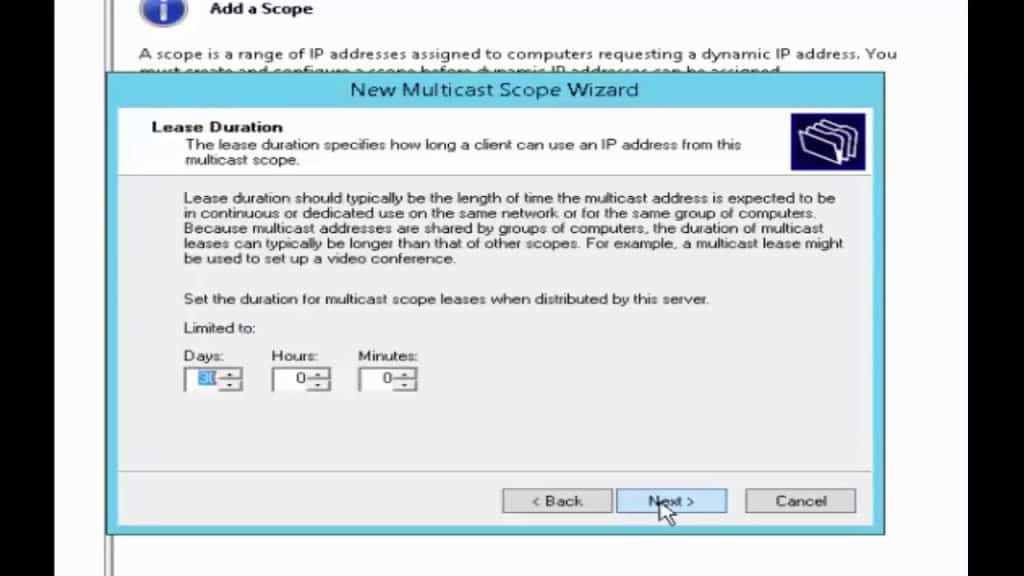Definition of multicast DHCP (MDHCP) in Network Encyclopedia.
What is MDHCP (multicast DHCP)?
MDHCP stands for Multicast DHCP, is an extension to the Dynamic Host Configuration Protocol (DHCP) supported by Microsoft Windows 2000 that offers dynamic assignment and configuration of Internet Protocol (IP) multicast addresses on TCP/IP networks. Multicast DHCP (MDHCP) extensions to DHCP are described in Request for Comments (RFC) 2131, which obsoletes the earlier RFC 1541.
How It Works
You normally configure DHCP servers by creating scopes. A scope contains a range of IP addresses chosen from class A, B, and C of the IP addressing scheme. These addresses are then assigned to a client who requests an IP address lease. Each client that requests an IP address from the DHCP server is assigned a unique IP address belonging to class A, B, or C.
MDHCP allows Windows 2000 DHCP servers to include class D multicast IP addresses in separate DHCP scopes. These addresses range from 224.0.0.0 through 239.255.255.255. Some class D addresses are permanently reserved for specific multicast groups, while others can be assigned as desired. MDHCP dynamically assigns these available class D addresses to clients who want to temporarily join a multicast group in order to receive a multicast transmission. The clients must support MDHCP in order to request and receive multicast addresses from the MDHCP service. Client machines running Windows 2000 support MDHCP.
MDHCP operates separately from DHCP, and a client that has an IP address from a DHCP server (or has a static IP address that has been manually assigned to it) can request from the MDHCP service an additional multicast address so that it can receive a multicast transmission over the network. A client can lease only one unicast address, but it can request and obtain multiple multicast addresses and belong to multiple multicast groups simultaneously.

Multicast DHCP support
If a client does not support MDHCP, it cannot request addresses from the MDHCP service. But it can run other applications (such as Microsoft NetMeeting) in order to receive multicast transmissions over a network.